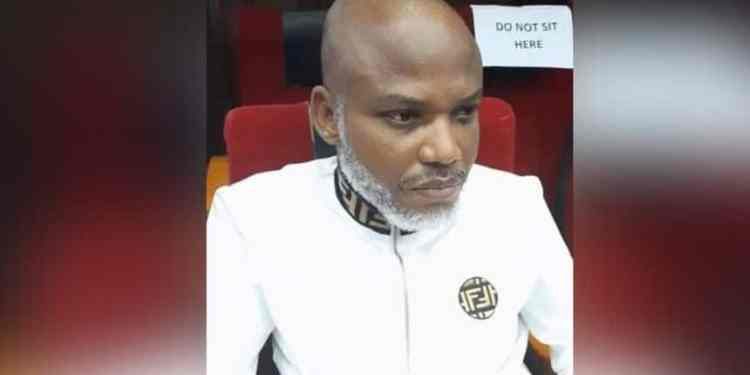By Karen James
In a shocking statement issued by Nnamdi Kanu, the leader of the Indigenous People of Biafra (IPOB), he declared that he cannot be tried in Nigeria and labeled anyone attempting to do so as a “terrorist.” Kanu’s statement has sparked controversy and raised questions about his immunity from Nigerian jurisdiction and the potential legal implications of his remarks.
The outspoken separatist leader, who has been at the center of a pro-Biafra movement, made the statement during a recent press conference. Kanu, who is currently residing outside Nigeria, asserted that he does not recognize the authority of the Nigerian government or its legal system over him.
Despite facing charges related to treason, terrorism, and other offenses in Nigeria, Kanu remains defiant and claims that anyone seeking to bring him to trial is engaging in acts of terrorism. He argues that his advocacy for the secession of the Biafran region is protected under international law and that his actions fall within the realms of self-determination.
The Nigerian government has yet to respond officially to Kanu’s remarks, but they are likely to complicate the ongoing legal battle and potential extradition process. The issue of jurisdiction and the rights of individuals involved in self-determination movements is a complex and sensitive matter, with various legal interpretations and international norms at play.
Legal experts suggest that Kanu’s assertion of immunity from Nigerian prosecution may not hold water under domestic or international law. However, the situation raises significant questions regarding the legal framework surrounding self-determination movements and the complexities of addressing such cases within the confines of national jurisdictions.
As the situation unfolds, it remains to be seen how the Nigerian government will respond to Kanu’s claims and whether it will pursue extradition proceedings. This development further underscores the deep-rooted divisions and grievances within Nigeria, particularly within the Biafran region, and highlights the ongoing challenges in addressing them through legal and political means.
The international community will closely monitor the proceedings surrounding Nnamdi Kanu, acknowledging the delicate balance between respecting national sovereignty and upholding human rights, including the right to self-determination. As the situation continues to unfold, it is increasingly important to seek peaceful and inclusive dialogue to address the underlying grievances fuelling such movements.

